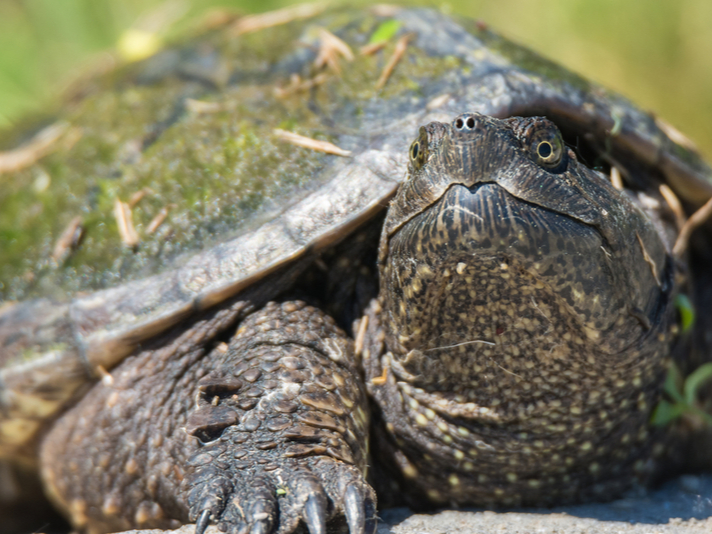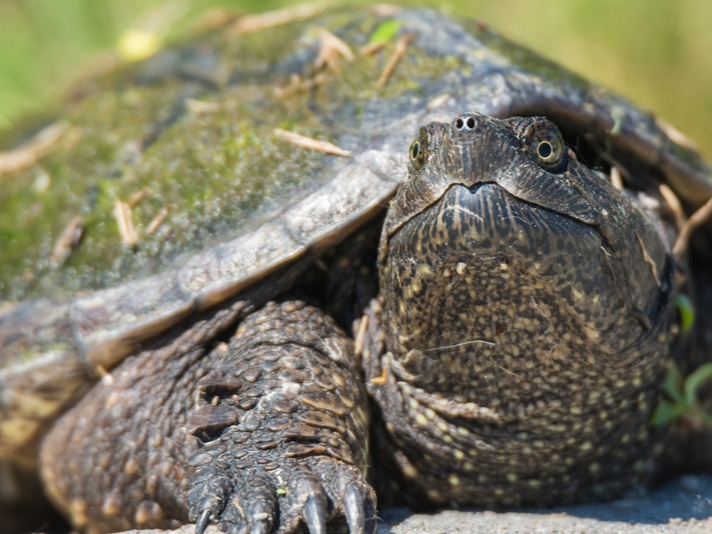The common snapping turtle (Chelydra serpentina) and three other U.S. turtles would be given more protections under a proposed USFWS rule.
Citing heavy pressure from China, the U.S. Fish and Wildlife Service has proposed that four species of freshwater turtles native to the United States be listed under the Convention on International Trade in Endangered Species of Wild Fauna and Flora (CITES) for protections.

sebartz/Shutterstock
The common snapping turtle (Chelydra serpentina) and three other U.S. turtles would be given more protections under a proposed USFWS rule.
The four turtles are the common snapping turtle (Chelydra serpentina), the Florida softshell turtle (Apalone ferox), the smooth softshell turtle (Apalone mutica) and the spiny softshell turtle (Apalone spinifera). The service says if the turtles are listed under CITES, it will be better able to monitor the international trade of the species and find out if exports are legal. The service will also consult with state wildlife agencies to determine if the turtles need to be better protected.
“Wildlife trafficking is not just a danger to foreign species. Native wildlife, including paddlefish, live reptiles and sharks, as well as plants such as ginseng, are poached and illegally traded,” said Bryan Arroyo, assistant director of international affairs at the USFWS. “We work closely with state wildlife agencies to protect native species and ensure that trade is legal and sustainable, particularly for species at greatest risk of overexploitation.”
According to the U.S. Fish and Wildlife Agency the global trade in turtles, both legal and illegal, over the course of the last two decades have followed a boom and bust cycle, whereby specific turtle species are traded to the point that they are depleted in the wild or become regulated, which then causes the shift to other more plentiful species, which are then depleted in a cyclical fashion.
The proposed rule came about from a meeting at the Sixteenth Meeting of the Conference of the Parties (CoP16) to CITES. At that meeting, the United States, China and Vietnam worked together to increase protections for three native American turtles and 44 species of Asian freshwater turtles received increased CITES protections.
Public comment on the proposed rule must be made by December 29, 2014. If you wish to comment, go to www.regulations.gov and input Docket No. FWS–HQ–ES–2013–0052 into the search bar.


